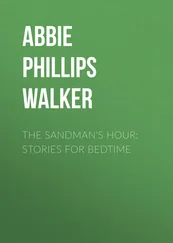Maria Edgeworth - The Parent's Assistant; Or, Stories for Children
Здесь есть возможность читать онлайн «Maria Edgeworth - The Parent's Assistant; Or, Stories for Children» — ознакомительный отрывок электронной книги совершенно бесплатно, а после прочтения отрывка купить полную версию. В некоторых случаях можно слушать аудио, скачать через торрент в формате fb2 и присутствует краткое содержание. Издательство: Иностранный паблик, Жанр: foreign_antique, foreign_prose, foreign_children, на английском языке. Описание произведения, (предисловие) а так же отзывы посетителей доступны на портале библиотеки ЛибКат.
- Название:The Parent's Assistant; Or, Stories for Children
- Автор:
- Издательство:Иностранный паблик
- Жанр:
- Год:неизвестен
- ISBN:нет данных
- Рейтинг книги:5 / 5. Голосов: 1
-
Избранное:Добавить в избранное
- Отзывы:
-
Ваша оценка:
- 100
- 1
- 2
- 3
- 4
- 5
The Parent's Assistant; Or, Stories for Children: краткое содержание, описание и аннотация
Предлагаем к чтению аннотацию, описание, краткое содержание или предисловие (зависит от того, что написал сам автор книги «The Parent's Assistant; Or, Stories for Children»). Если вы не нашли необходимую информацию о книге — напишите в комментариях, мы постараемся отыскать её.
The Parent's Assistant; Or, Stories for Children — читать онлайн ознакомительный отрывок
Ниже представлен текст книги, разбитый по страницам. Система сохранения места последней прочитанной страницы, позволяет с удобством читать онлайн бесплатно книгу «The Parent's Assistant; Or, Stories for Children», без необходимости каждый раз заново искать на чём Вы остановились. Поставьте закладку, и сможете в любой момент перейти на страницу, на которой закончили чтение.
Интервал:
Закладка:
'Lord, her head is full of broth now,' said Bab to her maid; 'and she has not a word for herself, though she has been abroad. My papa may well call her Simple Susan ; for simple she is, and simple she will be, all the world over. For my part, I think she's little better than a downright simpleton. But, however, simple or not, I'll get what I want out of her. She'll be able to speak, maybe, when she has settled the grand matter of the broth. I'll step in and ask to see her mother, that will put her in a good humour in a trice.'
Barbara followed Susan into the cottage, and found her occupied with the grand affair of the broth. 'Is it ready?' said Bab, peeping into the pot that was over the fire. 'Dear, how savoury it smells! I'll wait till you go in with it to your mother; for I must ask her how she does myself.' 'Will you please to sit down then, miss?' said Simple Susan, with a smile; for at this instant she forgot the guinea-hen; 'I have but just put the parsley into the broth; but it soon will be ready.'
During this interval Bab employed herself, much to her own satisfaction, in cross-questioning Susan. She was rather provoked indeed that she could not learn exactly how each of the ladies was dressed, and what there was to be for dinner at the Abbey; and she was curious beyond measure to find out what Miss Somers meant by saying that she would call at Mr. Price's cottage at six o'clock in the evening. 'What do you think she could mean?' 'I thought she meant what she said,' replied Susan, 'that she would come here at six o'clock.' 'Ay, that's as plain as a pike-staff,' said Barbara; 'but what else did she mean, think you? People, you know, don't always mean exactly, downright, neither more nor less than what they say.' 'Not always,' said Susan, with an arch smile, which convinced Barbara that she was not quite a simpleton. ' Not always ,' repeated Barbara colouring, – 'oh, then I suppose you have some guess at what Miss Somers meant.' 'No,' said Susan, 'I was not thinking about Miss Somers, when I said not always.' 'How nice that broth does look,' resumed Barbara, after a pause.
Susan had now poured the broth into a basin, and as she strewed over it the bright orange marigolds, it looked very tempting. She tasted it, and added now a little salt, and now a little more, till she thought it was just to her mother's taste. 'Oh, I must taste it,' said Bab, taking the basin up greedily. 'Won't you take a spoon?' said Susan, trembling at the large mouthfuls which Barbara sucked up with a terrible noise. 'Take a spoonful, indeed!' exclaimed Barbara, setting down the basin in high anger. 'The next time I taste your broth you shall affront me, if you dare! The next time I set my foot in this house, you shall be as saucy to me as you please.' And she flounced out of the house, repeating ' Take a spoon, pig , was what you meant to say.'
Susan stood in amazement at the beginning of this speech; but the concluding words explained to her the mystery.
Some years before this time, when Susan was a very little girl, and could scarcely speak plain, as she was eating a basin of bread and milk for her supper at the cottage door, a great pig came up and put his nose into the basin. Susan was willing that the pig should have some share of the bread and milk; but as she ate with a spoon and he with his large mouth, she presently discovered that he was likely to have more than his share; and in a simple tone of expostulation she said to him, 'Take a poon , pig.' 7 7 This is a true anecdote.
The saying became proverbial in the village. Susan's little companions repeated it, and applied it upon many occasions, whenever any one claimed more than his share of anything good. Barbara, who was then not Miss Barbara, but plain Bab, and who had played with all the poor children in the neighbourhood, was often reproved in her unjust methods of division by Susan's proverb. Susan, as she grew up, forgot the childish saying; but the remembrance of it rankled in Barbara's mind, and it was to this that she suspected Susan had alluded, when she recommended a spoon to her, whilst she was swallowing the basin of broth.
'La, miss,' said Barbara's maid, when she found her mistress in a passion upon her return from Susan's, 'I only wondered you did her the honour to set your foot within her doors. What need have you to trouble her for news about the Abbey folks, when your own papa has been there all the morning, and is just come in, and can tell you everything?'
Barbara did not know that her father meant to go to the Abbey that morning, for Attorney Case was mysterious even to his own family about his morning rides. He never chose to be asked where he was going, or where he had been; and this made his servants more than commonly inquisitive to trace him.
Barbara, against whose apparent childishness and real cunning he was not sufficiently on his guard, had often the art of drawing him into conversation about his visits. She ran into her father's parlour; but she knew, the moment she saw his face, that it was no time to ask questions; his pen was across his mouth, and his brown wig pushed oblique upon his contracted forehead. The wig was always pushed crooked whenever he was in a brown, or rather a black, study. Barbara, who did not, like Susan, bear with her father's testy humour from affection and gentleness of disposition, but who always humoured him from artifice, tried all her skill to fathom his thoughts, and when she found that it would not do, she went to tell her maid so, and to complain that her father was so cross there was no bearing him.
It is true that Attorney Case was not in the happiest mood possible; for he was by no means satisfied with his morning's work at the Abbey. Sir Arthur Somers, the new man , did not suit him, and he began to be rather apprehensive that he should not suit Sir Arthur. He had sound reasons for his doubts.
Sir Arthur Somers was an excellent lawyer, and a perfectly honest man. This seemed to our attorney a contradiction in terms; in the course of his practice the case had not occurred; and he had no precedents ready to direct his proceedings. Sir Arthur was also a man of wit and eloquence, yet of plain dealing and humanity. The attorney could not persuade himself to believe that his benevolence was anything but enlightened cunning, and his plain dealing he one minute dreaded as the masterpiece of art, and the next despised as the characteristic of folly. In short, he had not yet decided whether he was an honest man or a knave. He had settled accounts with him for his late agency, and had talked about sundry matters of business. He constantly perceived, however, that he could not impose upon Sir Arthur; but the idea that he could know all the mazes of the law, and yet prefer the straight road, was incomprehensible.
Mr. Case having paid Sir Arthur some compliments on his great legal abilities, and his high reputation at the bar, he coolly replied, 'I have left the bar.' The attorney looked in unfeigned astonishment that a man who was actually making £3000 per annum at the bar should leave it.
'I am come,' said Sir Arthur, 'to enjoy that kind of domestic life in the country which I prefer to all others, and amongst people whose happiness I hope to increase.' At this speech the attorney changed his ground, flattering himself that he should find his man averse to business, and ignorant of country affairs. He talked of the value of land, and of new leases.
Sir Arthur wished to enlarge his domain, and to make a ride round it. A map of it was lying upon the table, and Farmer Price's garden came exactly across the new road for the ride. Sir Arthur looked disappointed; and the keen attorney seized the moment to inform him that 'Price's whole land was at his disposal.'
'At my disposal! how so?' cried Sir Arthur, eagerly; 'it will not be out of lease, I believe, these ten years. I'll look into the rent-roll again; perhaps I am mistaken.'
Читать дальшеИнтервал:
Закладка:
Похожие книги на «The Parent's Assistant; Or, Stories for Children»
Представляем Вашему вниманию похожие книги на «The Parent's Assistant; Or, Stories for Children» списком для выбора. Мы отобрали схожую по названию и смыслу литературу в надежде предоставить читателям больше вариантов отыскать новые, интересные, ещё непрочитанные произведения.
Обсуждение, отзывы о книге «The Parent's Assistant; Or, Stories for Children» и просто собственные мнения читателей. Оставьте ваши комментарии, напишите, что Вы думаете о произведении, его смысле или главных героях. Укажите что конкретно понравилось, а что нет, и почему Вы так считаете.












